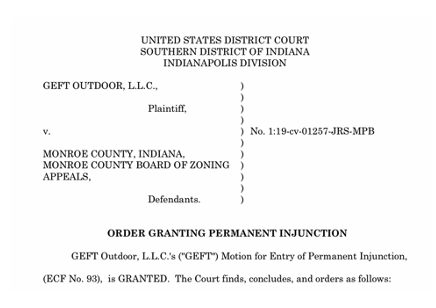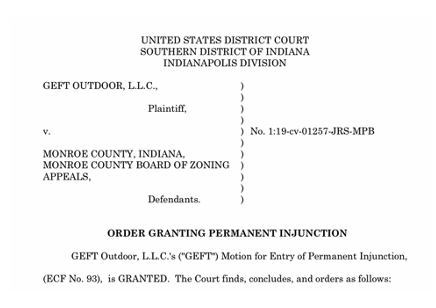

A federal judge in Indiana (nominated by President Trump) issued an injunction against a local sign-variance process as subjective and vague, and therefore unconstitutional.
The ruling is a victory for GEFT Outdoor, which sought a digital billboard permit in Monroe County (IN).
“The Court concludes that the permit requirement is an impermissible prior restraint on speech because it gives the County too must discretion in granting or denying permits because the standards guiding the permit decision are subjective and vague,” US District Court Judge James R. Sweeney II ordered on November 23, 2021 (GEFT Outdoor v. Monroe County).
Background
GEFT Outdoor sought to erect a digital billboard along I-69 in Bloomington, IN. GEFT sought a local variance in 2019 from development standards and use restrictions.
The local Board of Zoning Appeals denied GEFT’s variance on March 6, 2019; GEFT filed suit later that month.
The judge’s order permanently enjoined the county from enforcing the permit requirement of its ordinance and applying the variance process from sign requirements. The permit requirement can be severed from the overall sign standard, the Court said.
Judge Sweeney said “nebulous criteria create too high a risk that the BZA (local authorities) might grant or deny a variance based on whether it likes or dislikes the content or viewpoint of a given sign.”
Click here for the Order Granting Permanent Injunction.
Click here the judge’s Entry on motions.
Published: November 24, 2021